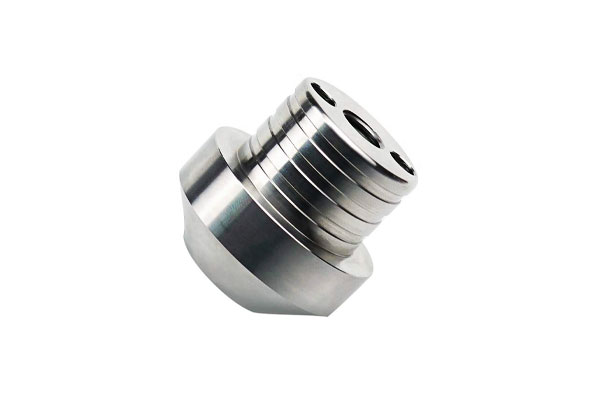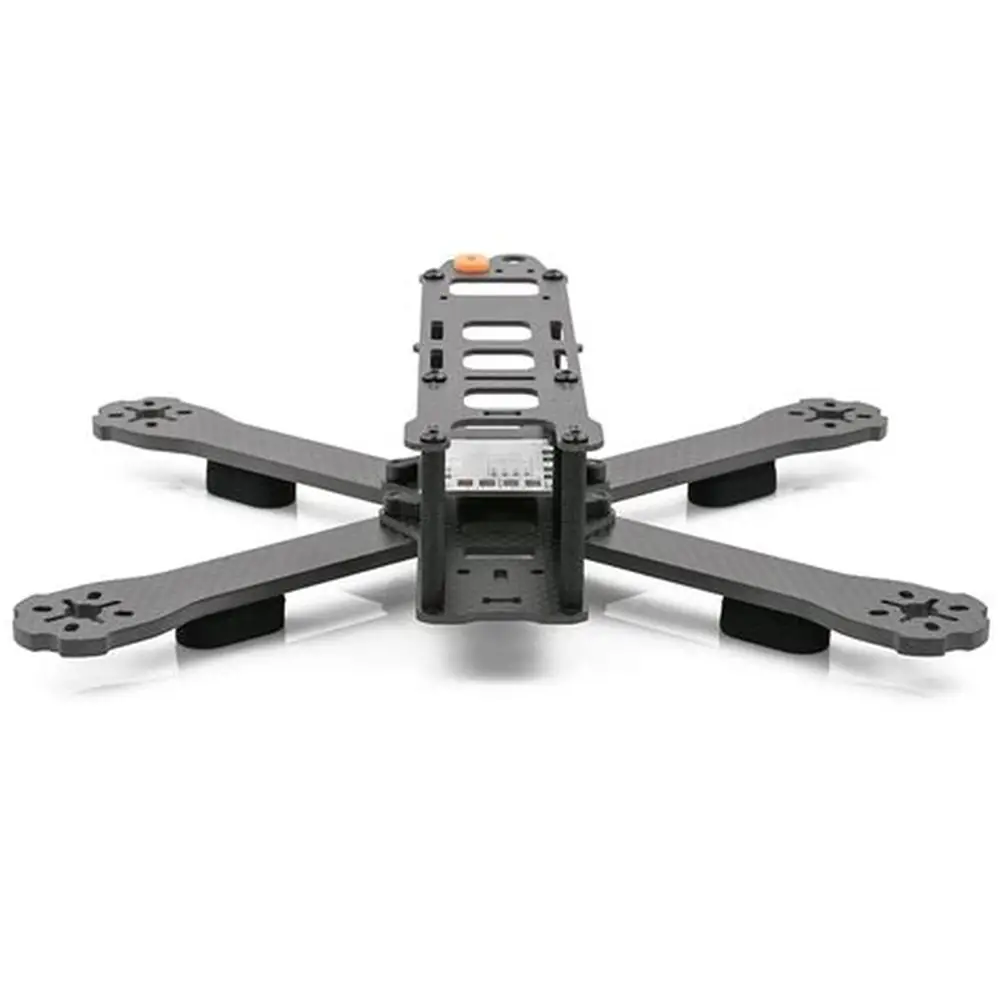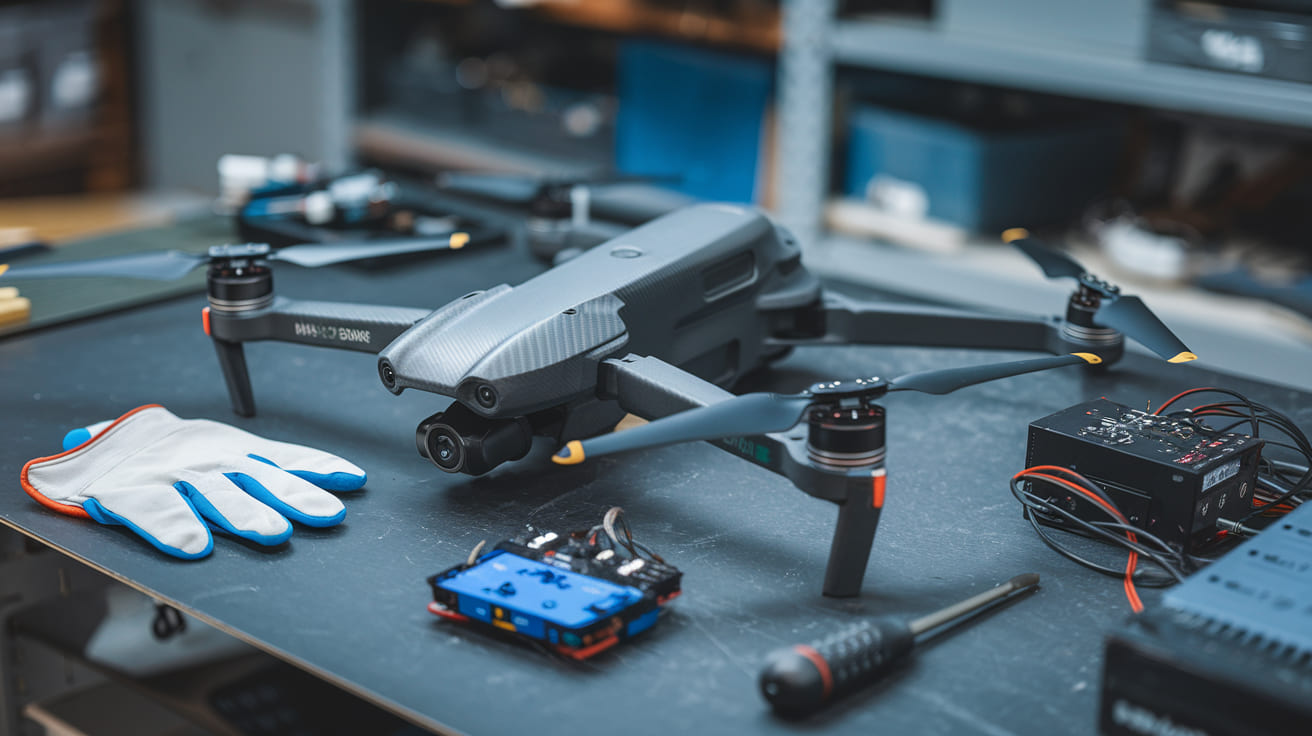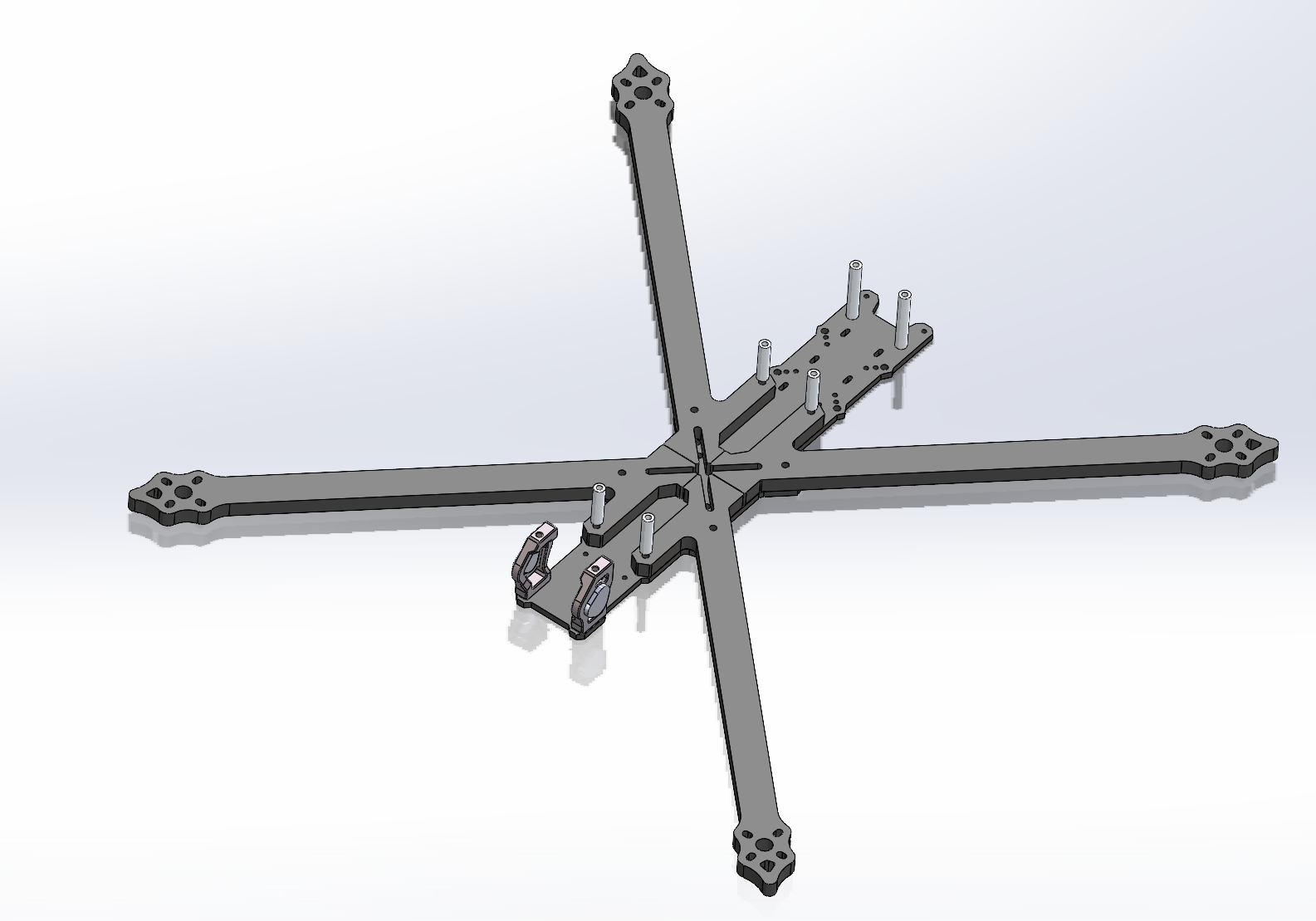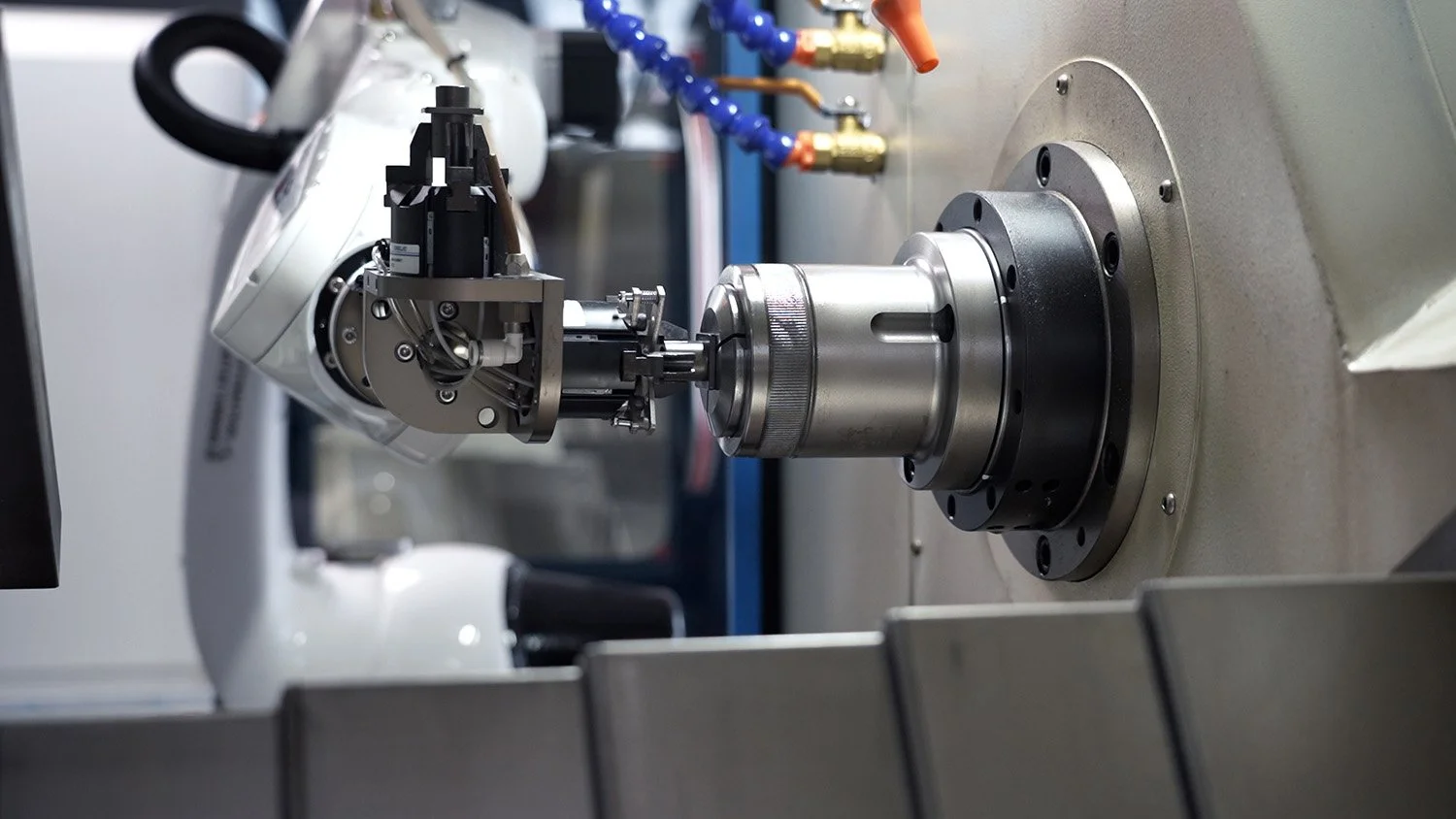CNC Machining Service for Titanium Ti-6Al-4V Medical Components: Precision Manufacturing for Life-Saving Devices
The medical industry’s relentless pursuit of improved patient outcomes has established titanium Ti-6Al-4V as the material of choice for critical medical components and implants. The exceptional biocompatibility, strength-to-weight ratio, and corrosion resistance of this alloy demand specialized manufacturing expertise. CNC machining service for titanium Ti-6Al-4V medical components represents a highly specialized discipline that combines advanced manufacturing technologies with medical-grade quality systems to produce components that meet the rigorous standards of modern healthcare.
Titanium Ti-6Al-4V in Medical Applications: Material Properties and Biocompatibility
Titanium Ti-6Al-4V, particularly in the ELI (Extra Low Interstitial) grade, has become the premium choice for medical implants and surgical instruments due to its exceptional biological and mechanical properties. Understanding these material characteristics is fundamental to providing superior CNC machining service for titanium Ti-6Al-4V medical components.
Metallurgical Properties of Medical-Grade Ti-6Al-4V
The superior performance of titanium Ti-6Al-4V in medical applications stems from its specific metallurgical composition and processing:
Chemical Composition Requirements
-
Aluminum (5.5-6.5%): Alpha phase stabilizer providing solution strengthening
-
Vanadium (3.5-4.5%): Beta phase stabilizer enhancing ductility and heat treatability
-
Oxygen (<0.13%): Controlled to minimize interstitial embrittlement
-
Iron (<0.25%), Carbon (<0.08%): Strictly limited in medical grade versions
Mechanical Properties for Medical Applications
-
Tensile Strength: 130-150 ksi (896-1034 MPa)
-
Yield Strength: 120-138 ksi (827-951 MPa)
-
Elongation: 10-15% in 2 inches
-
Fatigue Strength: 80-100 ksi (552-689 MPa) at 10⁷ cycles
-
Modulus of Elasticity: 16.5 Msi (114 GPa)
Medical Applications of Titanium Ti-6Al-4V Components
The unique properties of titanium Ti-6Al-4V make it ideal for numerous critical medical applications requiring CNC machining service for titanium Ti-6Al-4V medical components:
Orthopedic Implants
-
Hip stems and acetabular cups for joint replacement systems
-
Knee implant components including femoral and tibial elements
-
Spinal fusion devices and interbody cages
-
Bone fixation plates and trauma screws
Surgical Instruments and Equipment
-
Laparoscopic instrument shafts and articulation mechanisms
-
Surgical handpieces for powered instruments
-
Endoscopic components requiring precision and reliability
-
Dental implant abutments and surgical guides
*Table: Titanium Ti-6Al-4V vs. Other Medical-Grade Materials*
| Property | Ti-6Al-4V | 316L Stainless | Co-Cr-Mo Alloy | PEEK Polymer |
|---|---|---|---|---|
| Tensile Strength (MPa) | 896-1034 | 485-860 | 895-1000 | 90-100 |
| Yield Strength (MPa) | 827-951 | 170-690 | 450-1000 | |
| Elongation (%) | 10-15 | 12-40 | 8-20 | 50 |
| Fatigue Strength (MPa) | 552-689 | 240-410 | 250-896 | |
| Modulus (GPa) | 114 | 193 | 230 | 3.6 |
| Biocompatibility | Excellent | Good | Excellent | Excellent |
Technical Challenges in CNC Machining Service for Titanium Ti-6Al-4V Medical Components
While titanium Ti-6Al-4V offers exceptional medical properties, these same characteristics present unique challenges that must be addressed through specialized CNC machining service for titanium Ti-6Al-4V medical components methodologies.
Material-Specific Machining Considerations
Thermal Management and Work Hardening
The low thermal conductivity and chemical reactivity of titanium Ti-6Al-4V requires specific approaches in CNC machining service for titanium Ti-6Al-4V medical components:
-
Maintain controlled cutting speeds to manage heat generation at the tool-workpiece interface
-
Utilize sharp cutting tools with specialized geometries to minimize cutting forces and work hardening
-
Implement high-pressure coolant systems delivering 1000+ PSI to the cutting zone
-
Avoid tool dwell and interrupted cuts that can cause thermal shock and premature tool failure
Surface Integrity Requirements
Medical components demand exceptional surface characteristics, making CNC machining service for titanium Ti-6Al-4V medical components particularly challenging:
-
Achieve medical-grade surface finishes typically 0.4-1.6 μm Ra for implant surfaces
-
Minimize surface contamination from cutting tools or coolants
-
Prevent alpha-case formation from excessive heat generation
-
Control residual stresses that could affect component performance or dimensional stability
Precision and Biocompatibility Requirements
Medical components demand exceptional dimensional stability and biocompatibility, making CNC machining service for titanium Ti-6Al-4V medical components particularly challenging:
Geometric Dimensioning and Tolerancing
-
Positional tolerances typically within ±0.025mm for mating features
-
True position requirements often exceeding 0.05mm for assembly interfaces
-
Surface finish requirements ranging from 0.2-0.8 μm Ra for bearing surfaces
-
Angular tolerances within ±0.1° for complex joint replacements
Biocompatibility Assurance
The CNC machining service for titanium Ti-6Al-4V medical components process must ensure:
-
Material purity maintenance throughout manufacturing
-
Surface contamination prevention from tooling or coolants
-
Proper cleaning validation for sterilization compatibility
-
Documentation traceability for regulatory compliance
Advanced Machining Strategies for Titanium Ti-6Al-4V Medical Components
Successful CNC machining service for titanium Ti-6Al-4V medical components requires implementation of sophisticated machining strategies tailored to the material’s specific characteristics.
Tooling Selection and Optimization
Cutting Tool Materials and Geometries
The selection of appropriate tooling is critical in CNC machining service for titanium Ti-6Al-4V medical components:
Carbide Tool Selection
-
Micrograin carbide substrates with cobalt content optimized for titanium
-
Specialized coating systems including AlTiN and TiSiN for thermal protection
-
Polished flute surfaces to prevent titanium adhesion and built-up edge
-
Reinforced tool geometries with variable helix designs for vibration damping
Tool Geometry Optimization
-
Positive rake angles (5-7°) for free-cutting action while maintaining edge strength
-
Reduced clearance angles (5-7°) to provide adequate support for cutting edges
-
Specialized chipbreaker designs for effective chip control in deep cavities
-
Reduced neck lengths where possible to maximize rigidity and minimize deflection
Machining Parameter Optimization
Conservative Yet Efficient Machining Parameters
Advanced CNC machining service for titanium Ti-6Al-4V medical components utilizes carefully balanced cutting parameters:
Roughing Operations
-
Cutting speeds: 50-80 SFM (15-24 m/min) for conventional machining
-
Feed rates: 0.002-0.006 inches per tooth (0.05-0.15 mm/tooth)
-
Depth of cut: 0.050-0.150 inches (1.27-3.81 mm) based on tool diameter
-
Stepover: 30-50% of tool diameter based on tool length-to-diameter ratio
Finishing Operations
-
Cutting speeds: 100-200 SFM (30-61 m/min) for surface quality
-
Feed rates: 0.001-0.003 inches per tooth (0.025-0.076 mm/tooth)
-
Depth of cut: 0.005-0.020 inches (0.13-0.51 mm) for dimensional stability
-
Stepover: 5-15% of tool diameter for optimal surface finish
*Table: Machining Parameters for CNC Machining Service for Titanium Ti-6Al-4V Medical Components*
| Operation Type | Speed (SFM) | Feed (IPT) | DoC (inches) | Tool Material | Coolant Pressure (PSI) |
|---|---|---|---|---|---|
| Rough Milling | 50-70 | 0.004-0.008 | 0.1-0.3 | Uncoated Micrograin | 500-1000 |
| Semi-Finishing | 80-120 | 0.002-0.004 | 0.05-0.15 | AlTiN Coated | 1000-1500 |
| High-Speed Finishing | 150-200 | 0.001-0.002 | 0.005-0.020 | PCD | 1500-2000 |
| Drilling | 30-50 | 0.001-0.003 | Full depth | Carbide | 1000+ |
| Reaming | 20-40 | 0.001-0.002 | Full depth | Carbide | 500-1000 |
Quality Assurance and Metrology for Medical Components
The rigorous quality standards of the medical industry demand comprehensive inspection methodologies in CNC machining service for titanium Ti-6Al-4V medical components.
Dimensional Verification Systems
Advanced Metrology Equipment
-
Coordinate Measuring Machines with scanning capabilities for comprehensive feature analysis
-
White light scanning systems for complex contoured surfaces on implants
-
Vision measurement systems for rapid 2D feature verification on instrument components
-
Surface roughness testers with both contact and non-contact capabilities
Medical Device Quality Requirements
The CNC machining service for titanium Ti-6Al-4V medical components process includes detailed quality documentation:
-
ISO 13485 compliance for medical device quality systems
-
First article inspection reports with comprehensive dimensional data
-
Material certification verifying alloy composition and traceability
-
Process validation documentation including cutting parameters and inspection methods
Surface Integrity and Biocompatibility Verification
Surface Characterization
-
Surface roughness measurement using contact and optical methods
-
White light interferometry for detailed surface topography
-
Scanning electron microscopy for microstructural analysis
-
Surface contamination testing using EDS and XPS techniques
Biocompatibility Testing Support
-
Surface characterization for cleaning validation
-
Wettability testing for biological response prediction
-
Sterilization compatibility testing support
-
Corrosion resistance verification per ASTM standards
Case Studies: CNC Machining Service for Titanium Ti-6Al-4V Medical Components Success Stories
Case Study 1: Orthopedic Spinal Implant Manufacturing
Challenge: A medical device company required CNC machining service for titanium Ti-6Al-4V medical components for a complex spinal fusion device with porous structures for bone integration. The component demanded precise geometric features with tolerances of ±0.025mm and specialized surface treatments for biological fixation.
CNC Machining Service for Titanium Ti-6Al-4V Medical Components Solution:
Our approach involved a multi-stage manufacturing strategy:
-
5-axis simultaneous machining using 30-taper machines with high-pressure coolant through spindle
-
Specialized tooling strategies for porous structure machining without smearing
-
Cryogenic machining techniques for critical features to maintain dimensional stability
-
Electropolishing post-processing for biocompatible surface requirements
-
Non-contact inspection using white light scanning for porous structure verification
Results:
-
Achieved dimensional accuracy of 0.015mm on all critical features
-
Surface finish of 0.3 μm Ra on articulation surfaces exceeded specifications
-
Successful FDA 510(k) clearance with complete manufacturing documentation
-
99.8% first-pass yield rate on production batches of 500+ components
Case Study 2: Minimally Invasive Surgical Instrument Production
Challenge: A surgical device manufacturer needed CNC machining service for titanium Ti-6Al-4V medical components for laparoscopic instrument shafts with complex internal channels and articulation mechanisms. The components required wall thicknesses of 0.3mm in sections and precision bearing surfaces with 0.8 μm Ra surface finish.
CNC machining service for titanium Ti-6Al-4V medical components Solution:
Our specialized approach included:
-
Micro-machining capabilities using specialized small-diameter tools
-
Multi-operation machining with complete processing in single setup
-
Custom boring tools with micro-adjustment capabilities for precision bores
-
Surface enhancement processes including micro-blasting for optimal performance
-
Laser marking for permanent identification and traceability
Results:
-
Achieved wall thickness consistency within ±0.02mm across entire component
-
Surface finish of 0.6 μm Ra on critical bearing surfaces
-
40% reduction in manufacturing cost through process optimization
-
Successful clinical evaluation with zero device failures
Case Study 3: Dental Implant System Component Fabrication
Challenge: A dental implant company required CNC machining service for titanium Ti-6Al-4V medical components for a new implant system with complex internal thread forms and precision mating interfaces. The components demanded thread accuracy to ISO standards and surface characteristics optimized for osseointegration.
CNC machining service for titanium Ti-6Al-4V medical components Solution:
Our comprehensive manufacturing strategy incorporated:
-
Swiss-type turning centers with live tooling for complete part processing
-
Thread milling operations using specialized form tools for precision threads
-
Surface treatment integration including acid etching and anodizing
-
Automated inspection using optical comparators for thread verification
-
Cleanroom packaging for sterilization readiness
Results:
-
Achieved thread accuracy exceeding ISO 5835 standards
-
Surface topography optimized for enhanced osseointegration
-
99.9% component reliability in accelerated aging tests
-
Successful market launch with zero manufacturing-related complaints
Future Trends in CNC Machining Service for Titanium Ti-6Al-4V Medical Components
The manufacturing landscape for medical components continues to evolve with emerging technologies enhancing capabilities and efficiency.
Digital Manufacturing Integration
Industry 4.0 Implementation
-
Digital twin technology enabling virtual process validation and optimization
-
IoT-enabled machine monitoring providing real-time process analytics
-
Predictive maintenance systems minimizing unplanned downtime
-
Cloud-based manufacturing execution systems for seamless data integration
Advanced Process Optimization
-
Machine learning algorithms for adaptive parameter optimization
-
Real-time tool wear monitoring using advanced sensor systems
-
Thermal growth compensation through integrated measurement systems
-
Automated quality verification reducing inspection time and human error
Regulatory and Quality System Evolution
Digital Quality Management
-
Electronic device history records for complete traceability
-
Automated documentation systems for regulatory compliance
-
Real-time quality monitoring with statistical process control
-
Blockchain technology for supply chain transparency
According to the FDA’s Digital Health Center of Excellence, implementation of digital quality systems can improve manufacturing consistency by 25-40% while reducing compliance costs.
Conclusion: Excellence in CNC Machining Service for Titanium Ti-6Al-4V Medical Components
The manufacturing of titanium Ti-6Al-4V medical components represents one of the most demanding applications in precision machining. Success in CNC machining service for titanium Ti-6Al-4V medical components requires not only advanced equipment and technical expertise but also deep understanding of material behavior, medical device regulations, and quality standards.
The future of CNC machining service for titanium Ti-6Al-4V medical components will continue to evolve with digitalization, automation, and regulatory requirements driving innovation. Manufacturers who master these advanced capabilities while maintaining rigorous quality standards will lead the industry in producing the next generation of medical devices and implants.
For organizations seeking manufacturing partners with demonstrated expertise in CNC machining service for titanium Ti-6Al-4V medical components, Jingliyang Precision Technology’s CNC machining services offers comprehensive solutions with medical device certification and proven capabilities.

